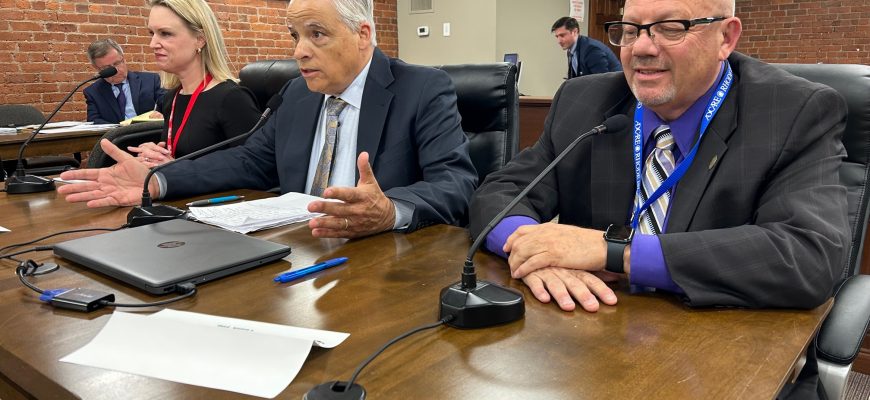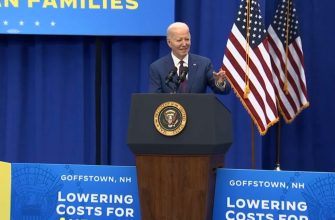A proposal to legalize online gambling in Rhode Island – and guarantee the state’s casino operator exclusive ownership rights – is facing difficult odds.
Lawmakers, including the House sponsor, fear how easy-to-access, credit card-payment apps will prey upon vulnerable teenagers and struggling gambling addicts. Other iGaming operators contend it’s not fair to give Bally’s Corp. a monopoly on the industry. And the Rhode Island Lottery, which oversees all forms of state-sanctioned gambling, declared the legislation, as written, to be unconstitutional.
All this to say: Changes will have to be made if the Bally’s-sponsored bill has any chance of passing. So said Rep. Gregory Costantino, a Lincoln Democrat and sponsor of the legislation, speaking at a State House hearing Tuesday.
Chief among Costantino’s worries is the impact on high school-aged kids, who he fears will be most vulnerable to gambling addiction and credit card debt if given the chance to play poker and other table games from their phones. He wants to see online gambling restricted to players ages 21 and up – even though online sports betting and iLottery games, which are already legal in Rhode Island, are available to 18-year-olds, as Elizabeth Suever, Bally’s vice president of government relations, pointed out.
“I think the three years [in age] makes a huge difference,” Costantino said in an interview on Wednesday.
Indeed, John Tassoni Jr., former state senator who now heads the Substance Use and Mental Health Leadership Council of Rhode Island, reiterated concerns also expressed earlier this month about the gambling problems proliferating among high school students. Tassoni warned those problems would only intensify with an increase in forms of online gambling.
“Our kids have enough to tackle right now,” said Rep. Teresa Tanzi, a Narragansett Democrat.
Tanzi laid out a litany of concerns; beyond exposing teenagers to a potential addiction, the app also takes credit cards – which casinos do not – creating more risks for problem gamblers running into debt. Not to mention how easy it is to hide an addiction from friends or family when bets can be wagered and games played from a couch, rather than in-person.
“This is just from top to bottom a horrible idea,” she said.
Other lawmakers appeared open to compromises. Several, including Costantino, called for raising the age to at least 19 or 20 years old. Tassoni also urged Bally’s to increase the $200,000 it pays to the lottery division annually for gambling addiction treatment, using the extra money for education and prevention.
Suever said the company “had no problem” expanding its efforts to education. She declined to answer other questions, including about raising the age for online gambling.
Other concessions might not come so easily. Among them: a request by the Rhode Island Lottery to give the state a greater share of the revenue from online gambling. The legislation includes a 50% share of revenue from online slots be transferred to the state and 18% of the revenue from online table games (the rest of the money is shared between Bally’s and the vendors behind the games themselves).
But Mark Furcolo, Rhode Island Lottery director, wants a greater share for state coffers. In written testimony, Furcolo warned of “significant cannibalization” of the state’s existing online lottery games if and when online casino gambling is approved.
“Increasing the state’s revenue share from iGaming would help maximize the state’s profit and offset anticipated revenue losses related to iLottery products,” Furcolo said.
A prior study commissioned by Bally’s projected that iGaming would bring in an extra $210 million in tax revenue for the state over a five-year period.
Then there’s the issue of state law. According to Furcolo, the bill violates the state constitution, because referenda approved by voters in 2012 and 2016, which authorized the casinos at Twin River and Tiverton, respectively, didn’t specifically OK online gambling.
Costantino brushed off the alleged constitutional violations.
“I am hearing that it is [unconstitutional] , and then I am hearing that it isn’t,” he said. “I guess the lawyers will have to figure that out.”
Furcolo also hinted at a concern expressed by other online gambling operators: the exclusive rights for Bally’s to corner Rhode Island’s iGaming market. Furcolo noted that the legislature has the power to grant such exclusivity, but suggested adding an underlying master agreement between Rhode Island Lottery and Bally’s.
Other vendors of online gaming contend a competitive market open to multiple iGaming operators would better serve the state: generating more revenue while heading off the emergence of an illegal iGaming industry, according to written testimony from Jon Mandel with the Sports Betting Alliance.
“Residents will continue to use the illegal market, drive into Connecticut, or wait until Massachusetts legalizes iGaming to then cross the border, to the benefit of the Commonwealth, not Rhode Island,” Mandel wrote.
Indeed, illegal offshore sportsbooks and online betting from online operators who prey on minors and launder money have become a growing cause of concern, as expressed by seven states in a letter to U.S. Attorney General Merrick Garland included in the documents for the hearing.
Patti Doyle, a spokesperson for Bally’s, in an emailed response Wednesday said, “We will continue to have productive conversations with The Lottery and other stakeholders on this critically important, revenue-generating legislation for the State.”
Greg Pare, a spokesperson for Senate President Dominick Ruggerio, who introduced the companion bill in the Senate, also said in an email that “all aspects of the legislation are under review.”
Both the Senate and House versions remain in their respective chambers’ committees as of Wednesday.








